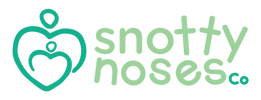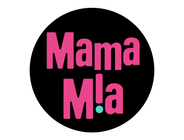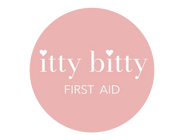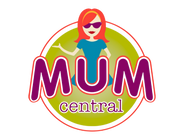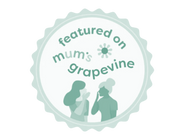Parenting is full of joy and wonder. And on other days, it's just full of snot and sick kids! From crusty bits to snot bubbles, streaming rivers of snot, and explosive sneezes, parents have seen it all.
Little ones are snot factories, and it's just a fact of life.
As adults, we tend to associate congestion with two main causes:
1. An infection or virus, like a cold
2. Irritants such as seasonal allergies.
However, a young child's nose and sinus passages can get irritated (and snotty) for a variety of reasons. Doctors advise that most babies and toddlers will have a snotty nose pretty regularly, yet it can be hard to understand the cause of your baby's mucus problem.

Let's explore the 5 common causes of snot and congestion...
1. Physiological Reasons
Did you know that newborns have different breathing patterns than older children and adults? Newborns are "obligate nasal breather" which means they must breathe through their noses during their first few months. They don't have the ability to breathe through their mouths at all.
In addition, their nasal passages and noses are so small that they may "sound" stuffy and congested, but there may not be always be nasal mucus to remove.
Newborns don't breathe regularly. Instead, they commonly take a few shallow breaths followed by pauses and deeper inhales, in no particular rhythm. The deeper breaths create turbulence in their nasal passages, which makes their breathing sound stuffy.
Your baby may be even too young to clear their noses with a big snort or sniff since that skill takes several months to develop. Sneezing helps, but often doesn't force out the mucus in one go.
2. Vomit /Spilling
Babies often spit up in the first few months of life, also known as reflux. Although most of the milk they regurgitate comes out their mouths, some of it may pass into their nasal passages from the back, causing nasal irritation.
This swelling, while not dangerous, can cause the baby to be slightly congested as their mucus membranes secrete lubricating and soothing mucus.
3. Airborne Irritants
Particles like dust, pollen, pet hair or cigarette smoke, and chemicals and fragrances found in cleaning supplies, perfumes and deodorants can all cause a baby's nose to react. That is because little noses (like adults) are lined with fine hairs and mucus membranes (called cilia) that work together to trap these types of irritants before they get to the lungs.
The resulting mucus is usually thin and clear. At this time parents might see an increase in snot drips and bubbles and hear stuffy sounds as they breathe.
Steady, safe nasal suction with a battery powered aspirator, like the Snotty Boss Aspirator can clear your little one's nose in seconds, so they can breathe, feed and sleep better.

4. Dry Air
Dry air is a unique irritant and can cause your baby to produce more mucus than normal. That's because the mucus membranes are working harder than usual to keep the baby's nasal passages moist. When the mucus escapes the baby's nose, it can dry into hard "crusties".
Because babies will be losing more moisture than normal when they exhale (and moist air leaves their lungs), make sure that they are hydrated regularly.
A heater in Winter or an air conditioner in Summer can severely dry out the nursery air. It's important to ensure the sleeping environment is safely humidified with a cool mist, ultrasonic vaporiser, like HUSH see below. The extra advantage of this device is that it has an inbuilt air purifier. But it's small and stylish, and has no filters to change, ever!
A daily nasal rinse with gentle saline or breast milk can keep little noses well hydrated, which helps with good health, better sleep and a more comfortable baby. Did you know a free saline spray bottle comes with any of our electric snot sucker.

5. Viral Illnesses Like Colds and the Flu
Parents are often surprised that an illness is the least common cause of snot. But babies do still get sick, particularly if older siblings are bringing germs home from daycare and kindy. There are over 200 different cold viruses, and your baby doesn’t have any immunity to them until they pick them up. Most babies will be sick 6-12 times in their first year, and a snotty nose will be one of the symptoms.
Unless your baby is showing signs of distress like lethargy, refusal to eat and drink, or extreme fever, it's best to treat your baby's illness at home, with rest, extra fluids and age-appropriate pain relief.
Stuffy noses that come from colds and the flu don't have the thick, green mucous you see in adulthood – their nasal passages usually produce thin clear mucous. Unity Children's Hospital has provided this snot colour guide:
Clear: This is the most common snot, and is no cause for great alarm
White: In babies, this is caused by dairy consumption, and is no cause for alarm
Light Yellow: Snot can turn light yellow when it has been sitting in your baby's sinuses for more than 12 hours. See your GP if the snot stays yellow for more than 5 days.
Bright Yellow: Could indicate a sinus infection so see your GP.
Green: Green "morning" snot is as a result of bacteria build up overnight and is not too concerning. However, if the snot stays green all day long, and into the night, see your GP.
Solutions
If your baby or toddler is congested for any reason, parents can clear the nose and help their baby breathe easier, feed efficiently and sleep better with a 3 step process of
1. Nasal saline spray (or breastmilk) up each nostril, to clean and loosen any mucus
2. Steady, safe suction with a battery powered aspirator, like the Snotty Boss Aspirator.
3. Humidify and purify the air with an ultrasonic vaporiser, like HUSH. Plain tap water can be used from birth. Generally from 3 months of age, water and a few drops of 100% pure essential oils, like Sniffle Season can be diffused.

We hope this guide to snot and sniffles has helped you understand a unique aspect of your baby's well-being. We'd love you to share this link with another Mumma friend.
Laura and the team xx
Disclaimer: We are not doctors or healthcare professionals or aromatherapists. Our products are offered for sale with general use guidelines provided by the manufacturer. Should any sensitivity to our products occur, please discontinue use. Our products and advice are general only and not intended to diagnose, treat, and/or take the place of medical treatment prescribed by a doctor or medical professional.

